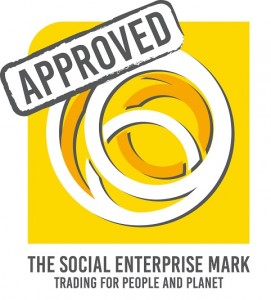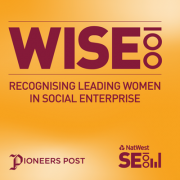Have we forgotten to ask how we can BE and DO better?
By Caroline Bartle, Managing Director of 3 Spirit UK
 I started to write this blog at the start of the year. Normally this is a time most people take stock and ask how can we BE and DO better? However, within our social care sector, this reappraisal is not new, but rather ongoing, and insidious. We are constantly being asked, how we can DO better. For many services this has resulted in cutting back, and prioritising profitability.
I started to write this blog at the start of the year. Normally this is a time most people take stock and ask how can we BE and DO better? However, within our social care sector, this reappraisal is not new, but rather ongoing, and insidious. We are constantly being asked, how we can DO better. For many services this has resulted in cutting back, and prioritising profitability.
However, what is the impact of this? Is there a hidden cost of dwindling social care funding, creating highly competitive, low cost, low value services? Has this disproportionate focus on the turning a profit taken us away from more ethical aspects of our work, as we forget to ask how can we BE better? Surely the test of how we can ‘BE’ better as a social care service lies within the ‘social impact’ that we have, not in the profit that we accrue.
About twenty years ago after a relatively short career in social work I became a proprietor of a social care business at the age of 27, and when I look back over the last two decades I see the factor which drove me to business was the freedom to BE the person that I wanted to be. Because of this, I get immense pleasure from my work, and my collaborations. I spend time working with the individuals that I chose, and I have the opportunities to learn about, and develop what I determine as critical, interesting and applicable. I am motivated, engaged and free to be innovative. My values are at the heart of my business, sometimes at the expense of profit. Over the years my values have evolved. As a young entrepreneur, I was always interested in creating and sharing, however now I am more concerned about how these collaborations impact on our communities, collectively and positively.
Despite being a ‘for profit’ organisation, we shared our resources, widely and openly (with no material gain), and attempted to reach out to individuals and organisations through our work. Whilst we have had many supporters, we have also been met with some alarming responses: individuals proactively unfollowed us, and actively excluded us. It was disappointing and deeply demotivating. There appears to be a lack of trust in our sector: driven possibly by competitive, anti-collective forces. Consider though what the possibilities might be for our sector if we are able to foster trust, and build alliances beyond the competitive limitations of market forces. What if we all shared common goals, the communities that we serve? What if there was a less of a ‘me’ mentality and more of an ‘us’?
The growth of a market was stimulated, in part with the introduction of the Community Care Act, and has relied on competitive forces, creating best value. However, how effectively does this model work now, in this current climate?
In 2012 the government introduced the Public Services (Social Value) Act in an attempt to get commissioners to consider the social impact of their buying power. However, this only applies to high value contracts. So what of all the other services, or individuals, purchasing services in their community? Whilst these services are regulated by the CQC, many are driven by profit, and may not always be making their decisions in the interests of ALL of their stakeholders. If we are to really make a ‘shared society’ work, should we not ‘expect’ that social enterprises are afforded preferential treatment at a local buyer level? In 2015 there was a review of the implementation of the Social Value Act, suggesting that the Act be extended to contracts below the public spend threshold. It is my view this could be extended further than suggested.
In the healthcare market we have already seen many services become social enterprises. Health has long had an expectation that it should service all stakeholders, as since the introduction of the NHS, it has been free at the point of delivery.
However, that is not the case for social care: the expectation remains that many providers maintain a ‘for profit’ status. Many business minded individuals identify opportunities in a growth market, particularly in the community, where there is a growing need to support individuals with more complex levels of care. The question is – how sustainable is this in the current market? Does the social enterprise model work better in this climate, and if so – should commissioners consider this as part of their market shaping strategy as part of a long term goal for smaller, as well as large organisations? Could this be applied across all types of services, particularly training services like us, whom should be embodying an example, as advocates of ‘best practice’.
So, what are your driving values as a proprietor? To make a profit or make a difference? Whilst on the face of it, it may be a little more complex than that, determining the overriding priorities will help to properly fo cus priorities on outcomes. As an education provider in social care, we aim to buck the trend, and embody this change.
cus priorities on outcomes. As an education provider in social care, we aim to buck the trend, and embody this change.
Social enterprise is a more comfortable fit for us: synergy with stakeholder expectations and our activities. Through raising awareness, we aim to provide better insights into the experience and needs of the individuals we support in the social care sector. From a business perspective, it seems to make sense, as it is through trading that we may have a bigger impact in society.










